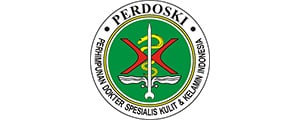VOLTAR
IMCAS Asia 2019
IMCAS Asia 2019
Programa
S032
Complication & management of dermatological scars (in collaboration with PERDOSKI)
Sala: Room 3B
Data: sexta-feira 5 julho 2019 de 17:30 às 18:30
Formato: FOCUS SESSION > lectures covering a major topic of the congress
Objetivos: 1. Identify lasers & EBD treatment options for dermatological scars 2. Develop combined treatment plans for acne scars 3. Assess the growing role of generative medicine in combined treatment for dermatological scars
Data: sexta-feira 5 julho 2019 de 17:30 às 18:30
Formato: FOCUS SESSION > lectures covering a major topic of the congress
Objetivos: 1. Identify lasers & EBD treatment options for dermatological scars 2. Develop combined treatment plans for acne scars 3. Assess the growing role of generative medicine in combined treatment for dermatological scars
Apresentações desta sessão
| Horas | Palestrantes | Título da apresentação | Resumo | Número |
| 17:30 | Welcome message from the PERDOSKI | 94659 | ||
| 17:33 | Combination of microneedle RF and fractional CO2 laser for acne scar and striae alba | 88210 | ||
| 17:43 | Laser scar treatment using pinhole method | Visualizar | 86180 | |
| 17:53 | Combination of stimulatory filler and picosecond laser for acne scar treatment | Visualizar | 85225 | |
| 18:03 | Efficacy of chemical peel for chicken pox scars | Visualizar | 86445 | |
| 18:13 | Do we still need growth factor to remodel acne scar after fractional CO2 laser? | 87420 | ||
| 18:23 | Questions and answers | 88272 | ||


















